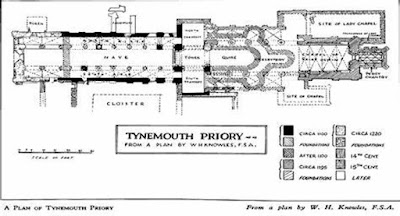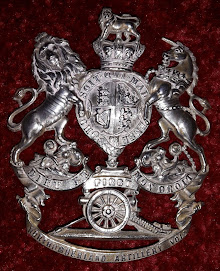A monastery on the Tynemouth headland was established in the 7th century when the late King of Northumbria, Oswine, was buried there. It flourished during the 8th and 9th centuries, however, it was the subject of four major raids during the 9th century, and in 875 it was destroyed.
The monastery was re-established in 1090, and new buildings constructed. The Priory was endowed with extensive lands, the rents and resources, notably coal, from which it prospered. This led to further development and expansion of the priory buildings.
 |
| Tynemouth Priory 1300 |
 |
| Tynemouth Priory 1450 |
The venerability of Tynemouth from Scottish raiders and it's use as a base for military campaigns resulted in a grant by Edward I in 1296 to be properly fortified. |
| Tynemouth Castle c1400 |
In 1534 Henry VIII broke away from the authority of the Catholic Church in Rome and established himself as the head of the Church of England. In 1536 Henry began the dissolution of the monasteries, appropriated their income and assets, removing them as a power base. Tynemouth Priory was dissolved in 1539, it's lands and possessions handed to the King, and the monastery closed.
The Priory became a military base as a staging post for the billeting and supply if forces engaged in war with Scotland.
 |
Tynemouth Priory
Percy Chantry being used as a supply base |
The priory would be used as an ordnance depot during the Napoleonic Wars and barracks were built during the 19th century. Guns would be positioned on the headland, and in 1904 a purpose built battery was built as part of the defence of the Tyne from coastal attack. The priory building it's self would fall into ruin over the centuries.
 |
| Tynemouth Priory 1789 |
A lighthouse was built near the priory on the headland in 1775. It was pulled down in 1898 following the building of the Tyne Piers.
 |
| Tynemouth Priory 1845 |











































